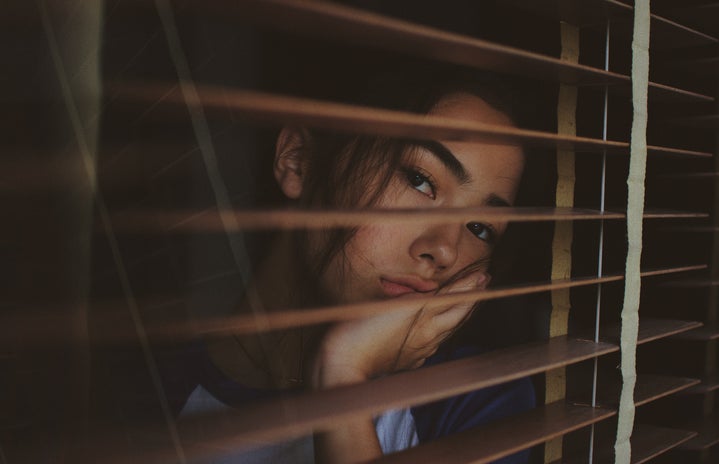TW: This article contains content about trauma
Parents often don’t set out to be toxic towards their children, but its effects are long-lasting. Much like Leslie Knope’s mother in Parks and Recreation, her tough parenting style may have been an excuse to build her daughter’s drive, but it significantly contributed to Leslie’s people-pleasing, anxious and controlling personality.
With the pandemic forcing many students to move back home, many individuals have had to re-evaluate their relationship with their parents in a way they didn’t need to in the past.
Parents and guardians are often the biggest contributors to shaping a child’s life, from supporting hobbies to guiding them through what is right and wrong. A caregiver’s approach to parenting can sometimes be perceived as isolated occurrences, however, these occurrences may result in long-term effects that negatively impact the child’s life.
But what happens when these contributions are toxic to a growing child? Studies show that childhood trauma from a parent can result in behavioural problems. According to a blog post by counsellor Alison Cook, “the effects of toxic parents take root in childhood. But, the problems aren’t always identified until well into adulthood.”
According to a book summary of Toxic Parents: Overcoming their hurtful legacy and reclaiming your life by Dr. Susan Forward and Craig Buck, many children live in denial about whether their parents are simply loving or toxic. Toxic parents often create rules and inflict judgement and pain – which is a hard truth to swallow. This is why children may find it easier to deny that their parents were ever toxic at all. Toxic parents deny their shortcomings as well; they see themselves better than they are.
Lethicia Foadjo, a Mississauga-based clinical social worker and therapist, said that, although the majority of parents she deals with have some kind of criminal affiliation, mental illness or disorder leading them to display toxic behaviour. They are oftentimes not diagnosed with anything and usually carry narcissistic behaviours, leaving them to inflict toxicity without realizing it.
“We’ll see parents who say “you’re over-exaggerating,” “you’re being too sensitive” or “stop being a baby,” explained Foadjo. “They make kids feel like they’re the problem and yet, the child is just dealing with a hypocritical narcissist who thinks nothing is wrong with them.”
Foadjo said that parents may make children feel as though they have to do things to be deserving of good parents when it should be a given.
“They decided to bring them into this world, not the other way around,” said Foadjo.
The book, Toxic Parents: Overcoming their hurtful legacy and reclaiming your life, dissects the patterns and long-lasting effects of toxic parenting.
Although all parents make mistakes, the book describes a clear line when too many mistakes play into a toxic home environment that inevitably negatively impacts a young individual.
The book covers a variety of toxic parenting styles that a child may be subject to, the negative consequences this may result in and ways to reclaim your life after a toxic upbringing.
In her book, Forward writes that there are a variety of ways that a parent can be toxic; the most common toxic behavioural patterns include the child taking care of the parent, having emotionally unavailable parents, parents constantly criticizing their children, children being afraid to express anger towards parents and children being frightened of their caretakers.
Toxic parents can continue to mistreat their child even after the child is an adult. This can be seen as money manipulation, feeling responsible for how your parents feel, intense emotional reaction to spending time with parents and being treated as a child despite being an adult.
A result of a toxic relationship with a parent can heavily influence every other adult relationship the child can make. Some examples of this can be constantly entering abusive relationships and developing an attachment style (anxious or avoidant), believing that people close to you will hurt or abandon you, or even finding yourself behaving like your parents unintentionally.
Foadjo explains that toxic behaviour exhibited by parents takes place at a micro and macro level. Macro-level toxic behaviour may include physical abuse and is when authorities should be involved.
At a micro-level, parents often feel like they’re caring for their child, but abusive patterns can arise – especially in situations where the child can compare it to the behaviour other parents are displaying. She said that toxic traits can be demonstrated through gaslighting, not letting your kids speak up and manipulating your kids by associating love with attention.
When it comes to combating this behaviour, Foadjo believes that it is entirely the responsibility of the parent.
“It’s not the child’s job to make the parents better,” she said. “Parents have to be willing to change and it has to be done willingly or unwillingly.”
Abuse doesn’t have a cookie-cutter definition and can be exhibited in all types of ways. Toxic parenting can often be the root of self-esteem issues, body image issues and a lack of self-love. Parents aren’t always intentionally toxic, but when they are externalizing this, it’s important to take steps towards having an open conversation when addressing their behaviour.
For many parents, intergenerational trauma and toxicity are major factors in their own toxic behaviours. Foadjo says it is extremely important to break this cycle to avoid displaying damaging behaviour, explaining that if parents change or try to give up specific toxic behaviours, the cycle of intergenerational toxicity can lessen over the years.
Outside the household, the community needs to do better, explains Foadjo. She says it’s important to fight the stigma around toxic households and create a school environment where students can reach out. Staff should also be able to identify if a child is being raised in a toxic environment, whether it’s physical or not. She says that Child Protection services should go beyond situations of neglect and abuse because toxicity comes in many forms.
Often, intergenerational toxicity is the excuse for toxic behaviour. Using phrases like “my parents did this” to justify a parent’s toxic behaviour is not valid and communities need to keep a lookout for this to better help children instead of placing pressure on children to reach out.
“I think that we should [have a] little bit more awareness beyond what meets the eye. Because I really do think that there are some families who are just not aware that this is toxic,” Foadjo says.
Reclaiming your life after a toxic upbringing is something very much attainable. As mentioned by Foadjo, it’s important to recognize that it is not the child’s responsibility to mend the relationship between the child and parent or even ‘fix’ their parent. Pretending it didn’t happen or masking it in forgiveness does no good. Although you cannot change your parents––nor should you wait for them to change––identifying the effects your parent’s actions can have on you and acknowledging that emotional healing doesn’t happen overnight is the first step in healing from toxic upbringing.


